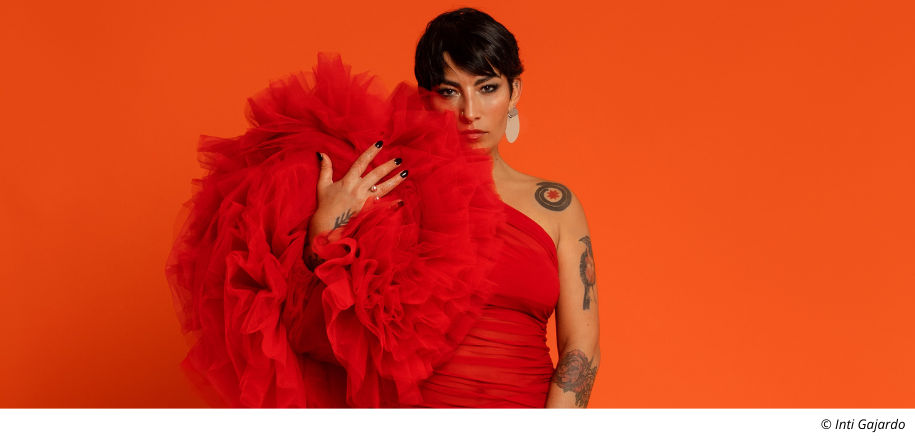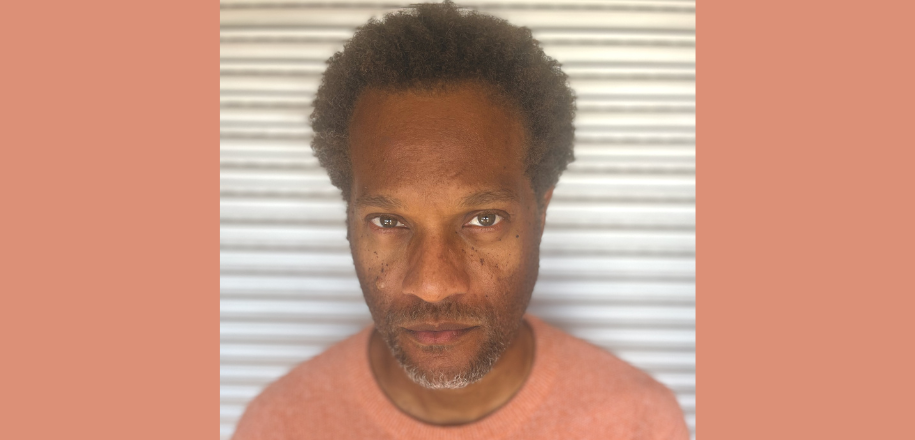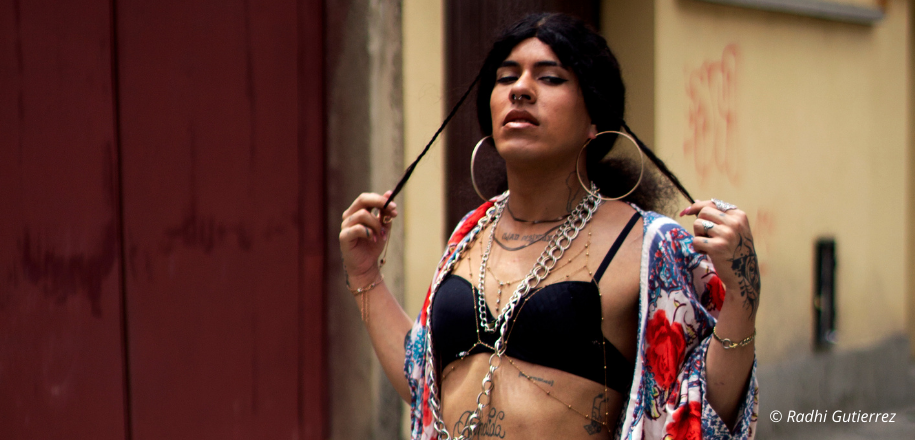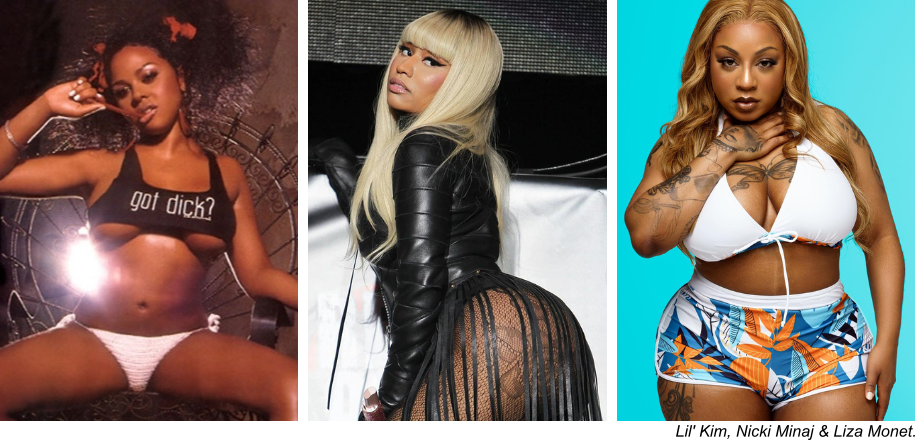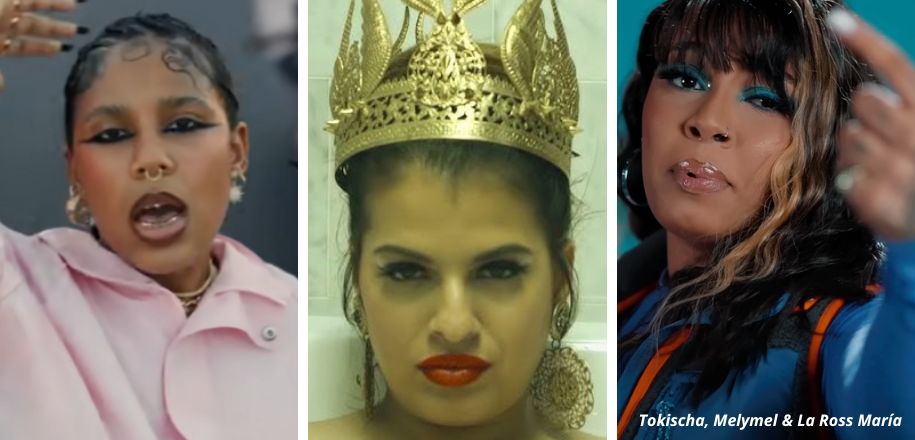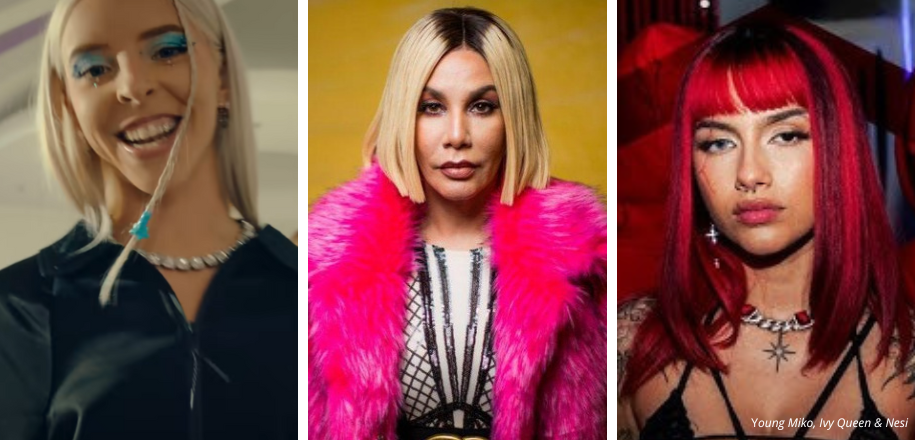Icon of Spanish-speaking rap, Franco-Chilean MC Ana Tijoux is back with the album Vida, ten years after the release of her last project. Born in France after her parents were forced into exile under the Chilean dictatorship, the rapper has been denouncing violence against women, dictatorships, capitalism, and all forms of oppression for over twenty years. She told us about her new album, her European tour, and her approach to commitment.
Vida is your first album in ten years. Why this time off and what has happened for you artistically during this period?
In fact, it’s been ten years since my last album. I know it sounds a lot, but when you’re a mom, working hard and touring all the time, I think you feel time in a totally different way.
I didn’t have time to settle down, to create, to put myself into an energy of contemplation. I was just sorting out work and dates.
How has your music evolved in ten years?
I don’t know if it’s an evolution, but I feel freer in the sense that I’m allowing myself to do things that I wanted to do or that I felt I could do but didn’t dare to. Now, on the contrary, I feel a kind of freedom that allows me to explore rhythms I might never have explored before.
You describe your single “Niñx” as “a manifesto for the child we all have inside us.” What inspired you to write this track?
In fact, “Niñx” is a song I wrote for my daughter, but also for myself. I remember when I was a kid and I’d look at grown-ups, I’d say to myself that I didn’t want to be like them. And in the end, you turn into them without wanting to.
I think one of the things I like most about music is that when I am composing or I am in that more creative state, that little girl is still moved. She contemplates things with that look that we all have.
I wrote this track to never forget the reasons that pushed me to create, to take up the pen and to rap.
The video was made by Chilean director Camila Grandi. How did you meet and decide to work together?
I’d seen her work on social networks and thought it was really great. She’s got a really interesting aesthetic, with a very distinct identity that’s all her own. I just wrote to her, she wrote back, and that was that.
You’re also back on tour in Europe. How is your return to the stage going?
I think that’s what I like best: to be able to play the songs, to give them a life of their own, to show what they sound like live. They change a lot, there’s a great amplitude.
With the tour we’re currently creating, composing, and developing, we’re trying to mix something danceable, or at least very rhythmic in terms of BPM. The tempos are generally pretty fast.
Since you started out in the 2000s, you’ve been a tireless campaigner against violence against women, dictatorships, capitalism, and all forms of oppression. How does rap help you fight your political battles?
In my world, I can’t conceive the separation between music and political commitment. With musicians I like, or who challenge me, we always put some questions on the table. I believe that at a time like this, when the whole world is in a state of violence, there are many things to be said and denounced.
I believe feminism is a topic that touches all humanity. It’s super interesting to see how my generation, the generation older than mine, and the younger generations are connected by this struggle. That’s why it’s so strong too.
Conversely, how do your political battles feed into your rap?
I’d say that political battles nourish me in every way, because it’s a sensitivity to what’s going on around me.
The problem of Palestine and the ongoing violence against the Palestinian people have always been present, but everything has re-exploded in a very violent way since October 2023. I think this is the time to take a stand and unite against genocide.
It’s the moment when rap has to be committed, and it’s that kind of rap that speaks to me. This sense of humanity, of having a minimum of empathy towards other human beings.
What’s your take on the current French rap scene?
As I lived in Latin America for a long time and moved to Barcelona, I listen to a lot of different stuff. Then I forget what it’s called, I’m bad with names. But there’s a new generation out there who’s killing it.
My 19-year-old son listens to a lot of French rap, and he’s the one who introduces me to these new generations, who are really interesting, and to new female rappers too.
Generally speaking, how does the Chilean audience welcome female rappers?
There’s a super-entertaining scene, which allows this whole new generation of female rappers to participate. There are a lot of amazing female rappers in Chile, like Irina Doom, RVYO, Rayo Kuza, 22Ruzz, Flor de Rap, LaMisty, Ambar Luna… There’s a huge list.
But what’s interesting is that there’s a bit of everything. There are macho people, people who are pretty closed-minded, they’re everywhere. But I think the new generation is much more open to listening to this new wave of women who have a lot of messages to put forward.
Is your audience different in France and in Chile?
I’d say yes and no. It’s hard for me to answer that question because I think sensitivity goes beyond countries. Even if I’m playing in Detroit or Colombia, there’s still something there. I think that’s the magic of playing live. It’s that beyond nationalities, there’s something that gets through.
What can we wish you?
Continuer de faire de la musique et d’apprendre. Apprendre, c’est tellement infini et tellement beau. De grandir musicalement, de pouvoir collaborer encore avec des musiciens et des musiciennes hallucinantes autour du monde. Et surtout de grandir. Je crois que ça serait un beau souhait.
Follow Ana Tijoux on Instagram, Twitter, TikTok, YouTube and Facebook.
© Inti Gajardo

